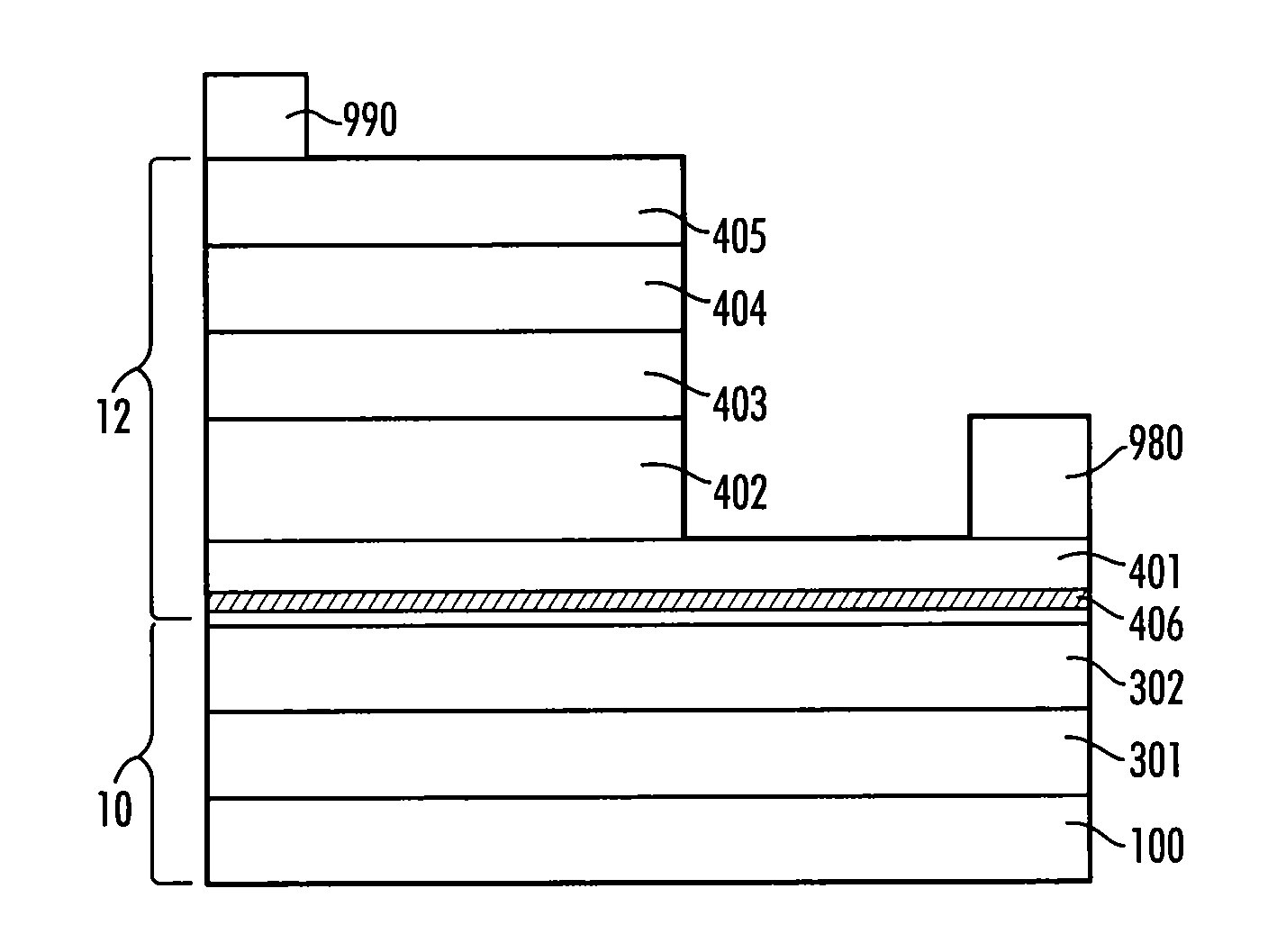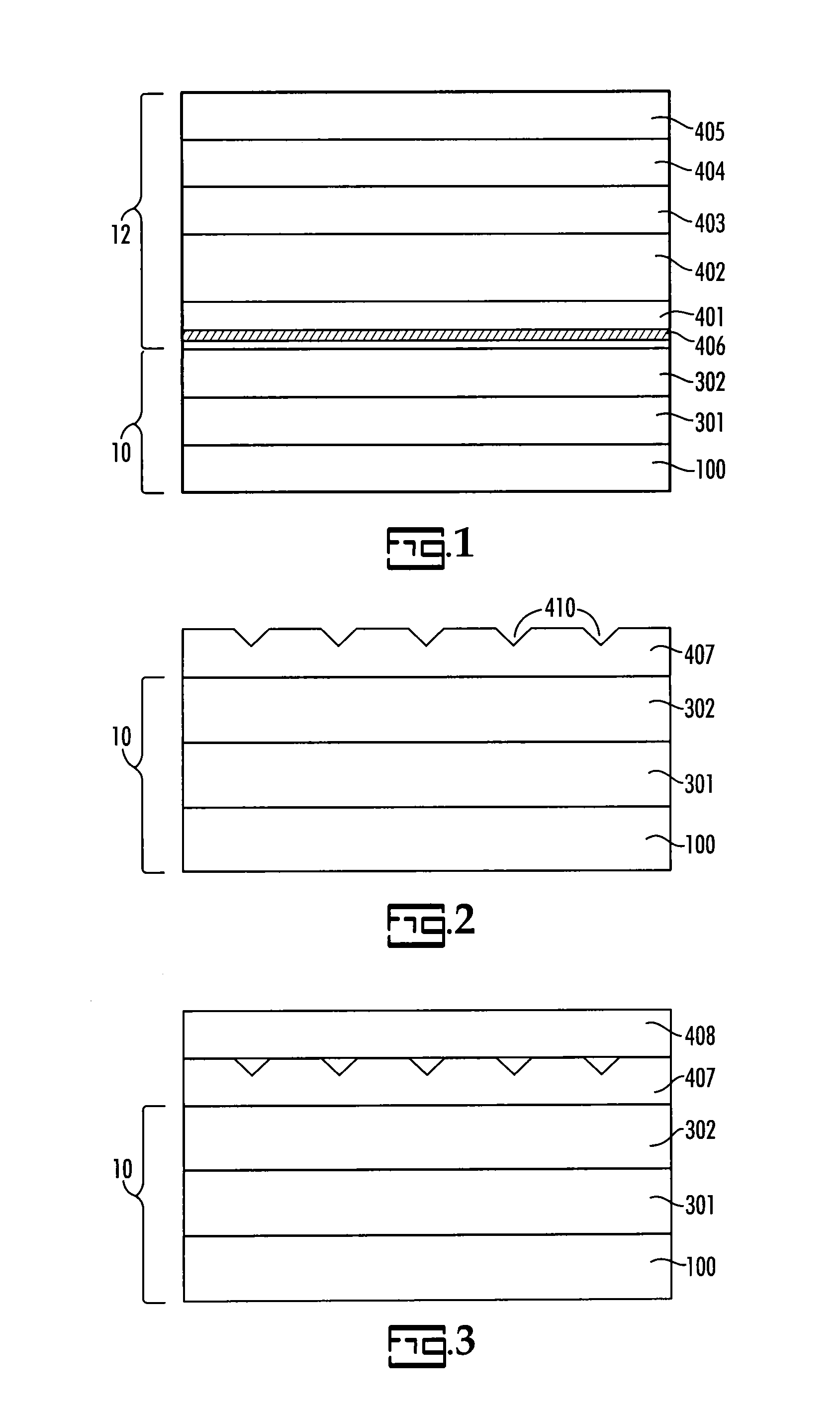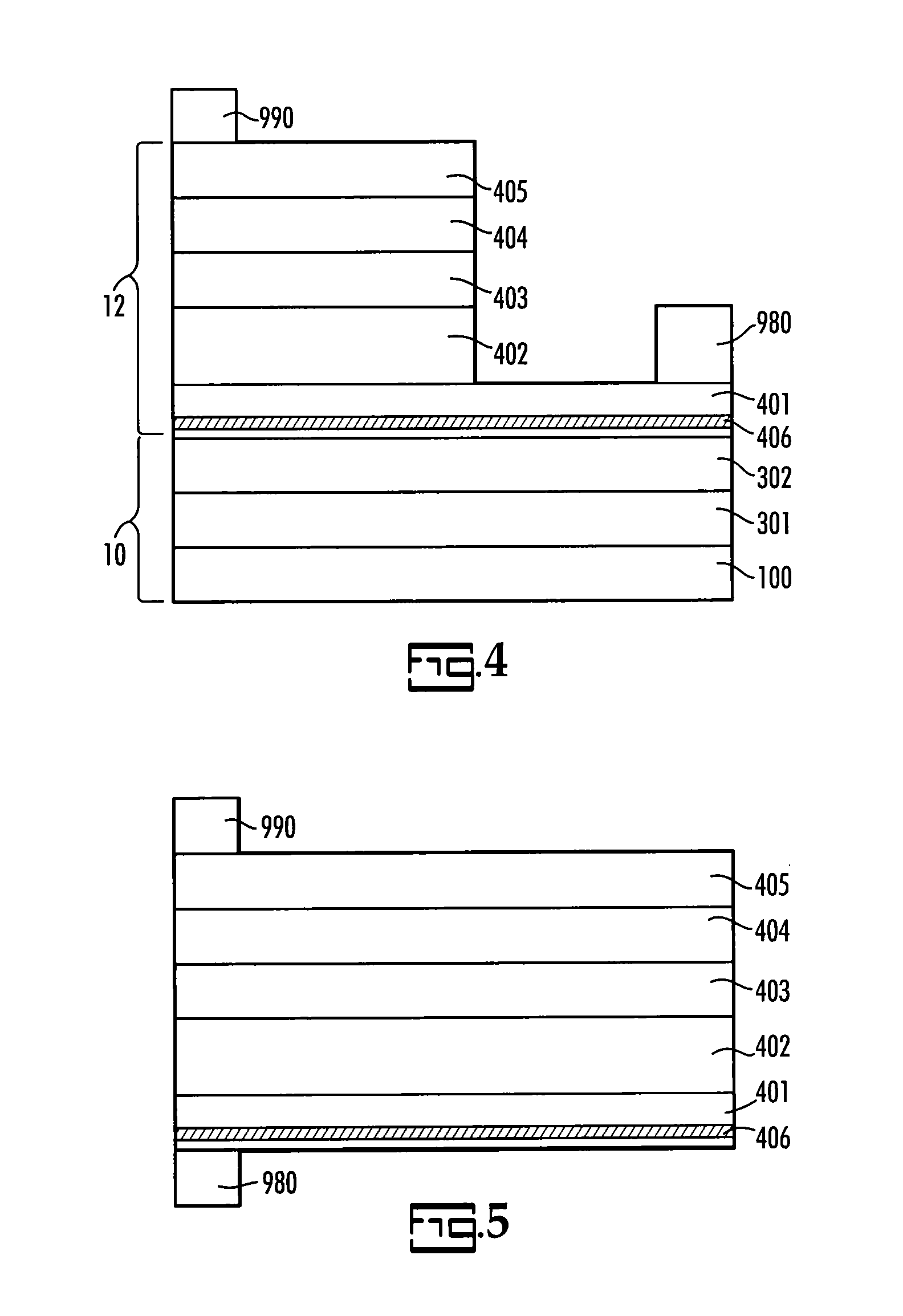Low resistance ultraviolet light emitting device and method of fabricating the same
a light-emitting device and ultraviolet light-emitting technology, which is applied in the manufacturing of semiconductor/solid-state devices, semiconductor devices, electrical devices, etc., can solve the problems of surface roughening or re-structuring type, achieve better surface roughness and film quality, and increase the lateral growth mode and crystallinity. , the effect of improving the surface roughness
- Summary
- Abstract
- Description
- Claims
- Application Information
AI Technical Summary
Benefits of technology
Problems solved by technology
Method used
Image
Examples
Embodiment Construction
[0035]The present invention is directed to a light-emitting device (LED) and a method for making an LED, particularly one that emits deep ultraviolet light. In particular, it is directed to a template that serves as a platform for an improved ultraviolet light-emitting structure, which includes epilayers constructed to overcome high series resistance.
[0036]The invention will be described with reference to the various figures forming an integral part of the instant disclosure. The figures and descriptions thereof, refer specifically to preferred embodiments without limit thereto. Throughout the figures similar elements will be numbered accordingly.
[0037]An embodiment of the invention will be described with reference to FIG. 1 wherein a schematic cross-sectional view is provided. In FIG. 1, a template, 10, includes a substrate, 100. A first buffer layer, 301, is added onto the substrate. A second buffer, 302, is applied to the first buffer. These buffer layers will be described more f...
PUM
 Login to View More
Login to View More Abstract
Description
Claims
Application Information
 Login to View More
Login to View More - R&D
- Intellectual Property
- Life Sciences
- Materials
- Tech Scout
- Unparalleled Data Quality
- Higher Quality Content
- 60% Fewer Hallucinations
Browse by: Latest US Patents, China's latest patents, Technical Efficacy Thesaurus, Application Domain, Technology Topic, Popular Technical Reports.
© 2025 PatSnap. All rights reserved.Legal|Privacy policy|Modern Slavery Act Transparency Statement|Sitemap|About US| Contact US: help@patsnap.com



